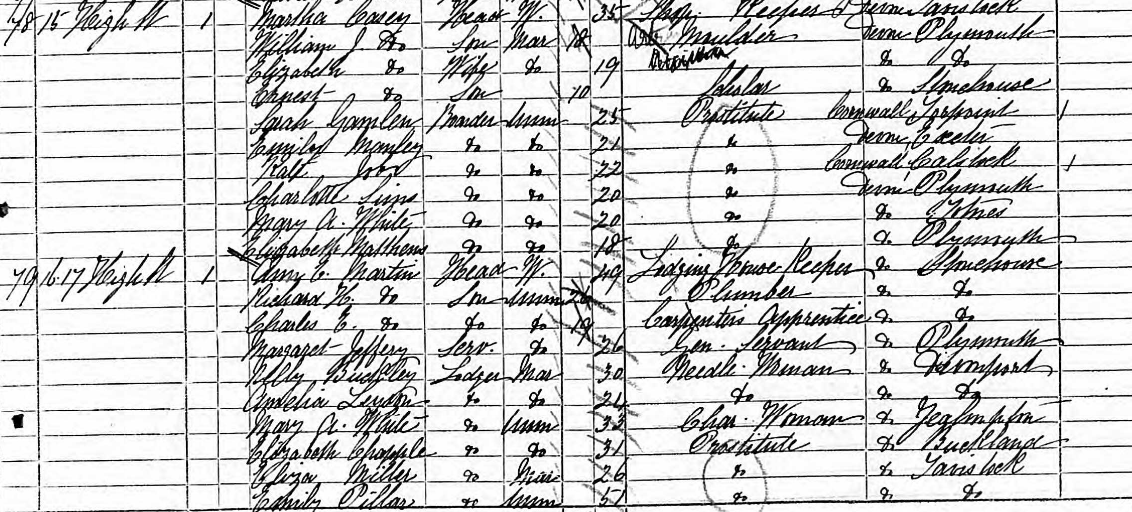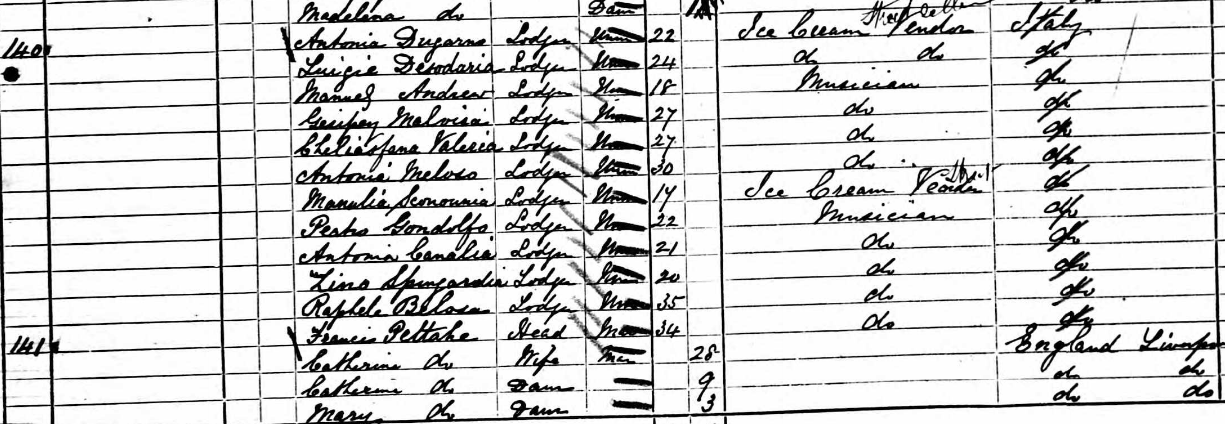Weird Jobs in the 1881 UK Census July 7, 2013
Author: Beach Combing | in : Modern , trackbackSpent the night and early morning looking for a much loved missing tortoise: mission accomplished at 6.42 amdist tears and recriminations. How do you punish a tortoise? This morning trying to come down from too much chocolate and coca cola. Took to racing through the 1881 census looking for unusual jobs and strange households: winding down. Here are a few that Beach enjoyed. Let’s start though with some census basics. Census collectors were respectable members of the lower middle classes who had a sense of propriety. They grew up in Victoria’s England for God sake. Usually they would slap around (verbally) anyone who claimed to be a ‘jedi knight’. But every so often you have instances of census collectors who didn’t get the job description. A nice example of this is with prostitutes. It was frowned upon to sell your body for sex in Victorian England to say the very least. It would, therefore, be profoundly stupid to either describe yourself as a prostitute or allow someone to do so. It is no accident, in fact, that by far the most ‘prostitutes’ in England are to be found in penal institutions in the 1881 census. However, every so often you get a census collector who just hasn’t read the script. These two houses, above, are from East Stonehouse in Devon. Martha Casey may have described herself as a shopkeeper and her neighbour Amy Martin may have termed herself a Lodging House Keeper, but they were ‘abbesses’ or madames. Nine prostitutes worked under them. Beach’s thoughts go out to Kate (a long way from home) and 18 year old William Casey and ten year old Earnest Casey: oh the testosterone that must have gone to waste. He also can’t help but thinking that if a Devon town like East Stonehouse needed nine prostitutes what about nearby Plymouth…
N. Caloestian (?) is described here as a ‘merchant (opium)’. We would have a less polite name for him today: a drug dealer. N, let’s call him Nick, was based in Fulham, a rough part of London and Nick came from Asia Minor, i.e. Turkey. Nick was the kind of character who appears in Tintin and gets up to no good there: cue certain racial stereotypes on part of Hergé. In most modern comics, he’d shoot you in your kneecaps and have large dogs, sharp suits, disposable cell phones and fast white cars. Not been able to find any opium dens yet in the census. Perhaps they had a politer name to go by? Should also note that opium is, of course, legal at this date: particularly if you are selling to the Chinese.
This is a house on Gerrard Street in Liverpool. Now Beach lives in Italy and loves Italy, in general, and Italians, particularly: just behind the Finns and the Welsh among the world’s great peoples. But he would not have wanted to have lived next door to this rabble. Antoni0 Dugarno, aged 22, is the head of the household. There are twelve others living in the house. They are clearly recent Italian immigrants all with different surnames: probably working under the patron system. Why should you fear this little pocket of Italy? Well, their average age is twenty-three or twenty-four; there is not a woman in the house; there is no family discipline; they spend most of their spare time making ice-cream in the privets outside; and the rest of the time practicing on their musical instruments. Beach has included the next door neighbours in the screen shot just so you can come close to the full horror of Naples through the paper thin walls, and, if nineteenth-century stereotypes are anything to go by, being threatened by men with drooping moustaches and razor sharp knives. 
Finally, a couple of probable shysters from the occult side of the fence. First, there is Susannah Smith and her daughter Ann (?), respectively astrologer and ‘student in astrology’! Then, below, we have Mary Brewer, wife of Henry Brewer, Cabinet Maker. She was a ‘Seer’ (underlined!) aka ‘spiritualist medium’, in Hammersmith.
Any other unusual nineteenth-century professions represented in the censues? Drbeachcombing AT yahoo DOT com
30 July 2013: JB writes ‘I spotted a fact that is very unlikely to mean anything but I thought I would pass it on anyway. The name Caloestian is likely the surname that is commonly spelled Kaloustian in Latin script. It is a fairly common Armenian surname. I volunteered at a charity in LA that aids Armenian refugees. I saw this last name frequently spelled every which way. Transcribing Armenian names into English can be quite tricky. It is still not uncommon to see relatives with slightly different spellings of their last name due to the whims of translators and immigration officials.’ Thanks JB!






